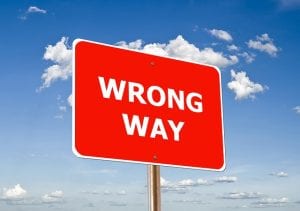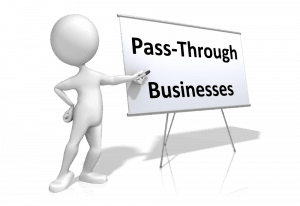As the new year begins, many of us take stock of our past and plan for the future. As a business owner, it can be easy to get caught up in daily tasks and neglect long-term planning for your its succession. However, it's essential to consider the impact and legacy you want your business to have in the future. If you want to make a positive difference for future generations, consider using a new, lesser-known planning tool called the purpose trust.
A traditional trust is a legal agreement between three parties: the grantor, trustee, and beneficiary. The grantor funds the trust with financial or property assets, and the trustee manages these assets according to the terms of the trust, for the benefit of designated beneficiaries. A charitable trust is an exception, as it is created for a charitable purpose but does not have specifically designated beneficiaries. Recently, some states have introduced the concept of noncharitable purpose trusts, also known as purpose trusts.
These trusts can be established for most lawful purposes, as long as they are reasonable and do not violate public policy. However, in some states, they can only be used for specific purposes such as pet care or grave site maintenance. To ensure that the trustee carries out the grantor's stated purpose, the grantor must appoint an independent “enforcer” who can petition the court if duties outlined in the trust are not performed. A trust protector can also be appointed to modify the trust if necessary, for example, to add beneficiaries or modify the jurisdiction where the trust is effective. The goal of a purpose trust is not primarily to minimize taxes or transfer wealth efficiently (though this can be achieved), but to ensure that the grantor's purpose is fulfilled.

You’ve likely heard of, or own clothing from the company, Patagonia. In September 2022, Yvon Chouinard, the the company’s founder, transferred the voting stock of the $3 billion outfitter to a purpose trust to extend his mission of fighting the planet’s environmental crisis. In an excerpt on the Patagonia website, he stated that the company's continued purpose is to "save our home planet." After finding out his children did not have a desire to take over the family business, Chouinard decided not to sell the company, as he worried a new owner might have different values and his employees would not retain job security.
The Patagonia Purpose Trust, guided by the family and advisors, took over the voting stock of the company to ensure that its values were upheld and profits were used for their environmental protection goals. A 501(c)(4) nonprofit organization was also set up to transfer the nonvoting stock into. The nonprofit will be funded by Patagonia’s dividends, amounting to an estimated $100 million a year, for environmental protection efforts. The business interests were not donated to a charity, so they will encounter an estimated $17.5 million in gift tax, and no charitable deduction will be available to Chouinard. However, he effectively avoided $700 million in capital gains taxes and substantial estate tax liability upon his death.
A purpose trust can be a viable option for business succession planning if you own a profitable company and want to keep its mission alive. Similar to the Chouinard family, you can ensure that your company's values and mission continue to be upheld for many years to come, and that your employees have job security. This is particularly useful if you do not have children who are interested in running the business or if your children do not share your values. The terms of a purpose trust can ensure that future management adheres to the trust's purpose, and also ensures that the company remains private and that values remain a priority over profit.
From a business standpoint, what are your goals for the future? If you're interested in using your wealth for the benefit of a cause you’re passionate about, you might want to look into a purpose trust. Contact the team at Anderson, Dorn & Rader to see if this planning option is suitable for you.
In general, the answer is yes; your trust can own your business after you die. But taking a deeper look into this matter, some factors may affect your individual situation. Both the type of business you own (LLC, Partnership, corporation, sole proprietorship), as well as how your business is currently managed can determine how the trust obtains ownership and continues operations after you pass. We’ll explore these determining factors here:

Once the trust has obtained ownership of your business, there are factors that affect how it will be managed after you are gone. The first factor is the type of business that has been transferred (which we explored above). The other is the way the business was managed prior to the transfer of ownership.

As is the theme with trust transfers, the terms will determine whether income is distributed to beneficiaries. The trust is entitled to receive income or distribute profit distributions to owners or stockholders.
In the case that your business is taxed as an S corporation, there are unique circumstances under which someone can own the S corporation after your death. Prior to transferring ownershipof trust assets, consult a qualified attorney or financial professional.
As discussed, there are many factors to consider and navigate when transferring business ownership before you die. Overall, it depends heavily on the type of business you are operating, as well as how it is currently being managed. Therefore, it’s a great idea to consult with professionals to properly consider every factor and complete the transfer of ownership with confidence. It can be daunting, but Anderson, Dorn & Rader is here to help!
Contact Anderson, Dorn & Rader, the trusted team of Nevada Wealth Counselors, to properly transfer ownership of your business before you pass.
 When you are caught up in your day-to-day activities it can be difficult to take a step back and look at the bigger picture. This is certainly true for a small business owner because it takes so much time and energy to run your business successfully.
When you are caught up in your day-to-day activities it can be difficult to take a step back and look at the bigger picture. This is certainly true for a small business owner because it takes so much time and energy to run your business successfully.
Retirement and estate planning involve some complexities for everyone, but when you are a small business owner you have added issues to consider.
When you work for a company you can simply put in your notice and accept your plaque as you walk out the door. On the other hand, when you are the owner of the business you must consider business succession strategies.
The sooner you determine how you want to exit, the better. Your exit strategy might affect the decisions you make every day. For example, if your intention is to pass the business along to a family member, you may be inclined to invest money into the infrastructure. If you are going to close the business entirely or sell it, you may focus on maximizing current revenue above all else.
Each situation is going to be unique. The best way to explore your options when it comes to small business succession planning would be to arrange for a consultation with an estate planning lawyer who has a background assisting business people.
Building a business may be your life’s work. It is important to make sure that you are comfortable with how you will be exiting.
With the above in mind, consider a partner in a small business. The value of the business may be the largest asset that this individual has to pass along to his or her family. However, there may well be multiple heirs, so this value must be divided somehow.
The family could sell the share in the business and split the proceeds, but this leaves a number of issues. Do the remaining partners have the cash to buy out the family? Or does the family sell the share of the business to a new investor? If the family tries to sell a fractional share of the business, they will not likely obtain the full value of the fractional share! Not to mention that the surviving partners would not necessarily embrace a new investor.
This type of situation can be addressed through a properly drafted operating agreement. Alternatively, this can be addressed through the execution of a buy-sell agreement called a cross-purchase plan.
In a cross-purchase plan, the value (or the methodology of the value) of the business interests is agreed-upon by the partners. The partners then purchase life insurance coverage on one another with the proceeds equaling the value of the business interests. Under the terms of the agreement, the remaining partners purchase the share that was owned by the deceased partner from his or her family with the combined insurance policy proceeds. In this manner, the family has liquidity while the surviving partners retain control.
A lot of people get their first exposure to retirement planning on the job. Most companies will give you the opportunity to participate in a group 401(k) retirement savings plan, and many of them will actually match your contributions up to a particular percentage. Those who contribute into a 401(k) account as employees fund their retirement with pre-tax earnings. The participant will eventually pay taxes on the withdrawals, but those taxes are deferred for a very long time.
When you work for yourself, you must make different arrangements. It is possible to open your own 401(k) account as a self-employed individual, and those who are serious about being able to retire in comfort should certainly consider doing so. As a self-employed individual with a 401(k) account, you have to make deposits on your own, but they are tax-deferred in the same manner. Most small business owners also look at other retirement planning options, such as SEP IRAs.
With nearly every retirement account, you must leave the account untouched until you are at least 59.5 years of age if you do not want to pay penalties. Once you turn 59.5, you can begin to take distributions in a penalty-free manner, but you don’t have to begin taking distributions until you are 70.5 years of age.
Retirement planning, business succession planning, and estate planning should all be addressed simultaneously to ensure your overall financial goals remain intact for you and your family.
Our Reno estate planning lawyers are holding some free Webinars in the near future, and you can click this link to register for the session that works for you.
 It is relatively easy to understand how important asset protection planning for Nevada residents can be. Most people want to make sure their assets are protected, including real estate, investments, business interests, and even personal property. Just consider the costs of malpractice, business (E&O), and other forms of liability insurance, which are rapidly increasing. It is certainly important to be preemptive in protecting your assets from potential creditors, whether that is through an insurance policy, homestead, or other asset protection plan. What may be even more important is understanding the most common mistakes in asset protection that Nevada residents should avoid.
It is relatively easy to understand how important asset protection planning for Nevada residents can be. Most people want to make sure their assets are protected, including real estate, investments, business interests, and even personal property. Just consider the costs of malpractice, business (E&O), and other forms of liability insurance, which are rapidly increasing. It is certainly important to be preemptive in protecting your assets from potential creditors, whether that is through an insurance policy, homestead, or other asset protection plan. What may be even more important is understanding the most common mistakes in asset protection that Nevada residents should avoid.
One common mistake that many people make is assuming that there is something wrong with creating a plan to protect your assets. Many people feel like they are "hiding assets" or irresponsibly "sheltering" their estate from the reach of creditors. That simply is not true. We are all free to structure our assets in the most advantageous way available, as long as we do so properly and in accordance with the law. The only time that the issue of fraud is raised is when the purpose of an asset protection plan is solely to hinder, delay, or defraud creditors from collecting valid debts. The key is to create your asset protection plan before the creditors' claims arise.
Plan in advance! Another mistake that some individuals make is not taking action to protect their assets until after a problem has arisen. If you've already been sued (or if you know you're about to be sued), it's likely too late to effectively create a plan. The best and most effective asset protection planning is accomplished long before any creditor claims arise. The best time to start an asset protection plan is when you are solvent and not currently facing any threats from existing creditors. The purpose of asset protection planning is to protect from potential future creditors. The sooner you start planning, the more options will be available to you.
One aspect of asset protection planning that is difficult for most people is making a proper determination of who is likely to be a potential creditor. Those who are able to make this determination are better able to make an effective asset protection plan. It is easier to plan when you know exactly what you are planning for. In other words, if you can implement a strategy to protect against certain claims you can more easily limit your exposure to that liability. Some common ways to avoid liability, especially for business owners, include:
You cannot rely on an asset protection plan someone else used. Friends may be well-intentioned, but one size definitely does not fit all when it comes to asset protection planning. Not every protection strategy will work in every case. Any estate planning attorney will tell you – an asset protection plan needs to be developed on a case by case basis. Some people can effectively create an asset protection plan by taking advantage of legal protections under homestead, ERISA, business, and other federal and local laws; still others may need a more complex asset protection trust to deal with potential creditors. Individual needs must be carefully considered when choosing your planning options, so don't use a boilerplate plan and hope that you will be protected. Most likely, you will not.
Many clients have the same misconception, that any type of trust can provide asset protection. That is not the case. First, revocable living trusts do not provide protection for individuals who created the trust simply for that purpose. It is important to remember that, in most states, when the person who has funded the trust is a potential beneficiary, then the assets may not be protected from creditors. However, a properly drafted revocable living trust may be able to add asset protection for surviving spouses and/or other beneficiaries. An irrevocable trust can only protect property that is transferred to the trust as long as there is no evidence of a fraudulent conveyance, and a statutory period of time has passed before a creditor claim arises. Foreign offshore trust accounts have come under scrutiny in United States Courts, recently. Very special care must be given when implementing an asset protection plan that includes an offshore account.
A part of asset protection planning necessarily includes consideration of possible inheritances from relatives, a factor that is often overlooked. Those inheritances must be structured, as well, in order to provide maximum flexibility, as well as, protection against creditors and divorce. An estate plan is a way for you to prepare yourself and your family for what happens after you pass away. An appropriate estate plan can also give you an opportunity to plan for unexpected incapacity. Regardless of how few assets you may have, planning for your family's future is a necessity for everyone.
If you have questions regarding mistakes in asset protection, or any other asset protection planning needs, please contact Anderson, Dorn & Rader, Ltd., either online or by calling us at (775) 823-9455.
 While there are several types of business entities to choose from when establishing a business, different business structures have different benefits and risks. The sources of tax and legal liability are different depending on which business form you choose to create. This information should help give you a basic understanding of the most common business structures.
While there are several types of business entities to choose from when establishing a business, different business structures have different benefits and risks. The sources of tax and legal liability are different depending on which business form you choose to create. This information should help give you a basic understanding of the most common business structures.
If you are the only owner of your business, and you choose not to register the business as its own entity (either a corporation of a Limited Liability Company), then it will automatically be considered a sole proprietorship. A sole proprietorship is basically a “pass through” entity, meaning that the owner pays the income taxes on the earnings from the business and can deduct business expenses on their personal income tax return. One tax benefit a sole proprietorship enjoys is that the owner is only taxed once on business income. However, despite being taxed once the sole proprietor must also pay self-employment taxes. Another benefit is that net losses can be “carried” over to other tax years, in order to offset potential tax liability in the future. One of the biggest risks in a sole proprietorship is the legal liability the owner may face in the event of a lawsuit or creditor claim.
Very similar to a sole proprietorship, a partnership is the default structure of an entity with more than one owner which has not registered as a corporation. Also, like a sole proprietorship, capital gains and income are taxed to the business owners on their personal income tax returns. Partners are only taxed once and they can “assign” property, income, and debts to other partners. Yet another benefit is that property disbursement taxes can be avoided with a partnership, because the assets are more easily transferred from the business. However, a partner may still be subject to self-employment taxes, and the legal liability of a partner will depend upon whether the individual is considered a "limited partner" or a "general partner."
The IRS recognizes basically two types of corporations for tax purposes: S-Corporations and C-Corporations. An S-Corporation operates much like a sole proprietorship or partnership, as the income is passed through to the owners. Profits and losses are also allocated proportionally. Business owners have the option of filing IRS Form 2553, which indicates they want to be taxed as a small business corporation or S-Corporation. A C-Corporation, on the other hand, is a unique separate legal entity that is responsible for filing its own tax return and paying corporate tax on the profits of a business. The owners of a C-Corporation are not taxed until there is a distribution made to the partners. This results in a double-taxation on the business earnings: once when the Corporation pays tax on its own tax return, and again when the income is distributed to the business owners. But while double-taxation may be an additional cost to the owners, the liabilities of the corporation cannot generally be attributed to the owners.
Limited Liability Companies (LLCs) are business entities established by state statutes. LLCs offer extreme flexibility for owners, as they can elect to be taxed as “pass-through” entities, such as S-Corporations or general partnerships, or to be taxed as corporate entities. Most business owners choose the LLC to be treated as a "pass-through" entity because it provides a way to avoid double taxation. The flexibility of a limited liability entity also allows the business owners to assign income and losses in the most tax-friendly way possible. While the tax consequences of a chosen business entity are important, the type of business entity you choose must depend on several other factors, as well. LLCs can provide greater liability protection for its owners than a sole proprietorship or partnership, although not as much as a corporation.
When deciding upon a business structure and choosing the type of entity with which you want to operate, an attorney should sit down and discuss the benefits, costs, risks, and attributes of these business entities.
If you have questions regarding business entities, or any other small business planning needs, please contact Anderson, Dorn & Rader, Ltd., either online or by calling us at (775) 823-9455.
 Pass through businesses are the most common form of business entity utilized by closely-held and family-owned businesses. The number of pass-through entities has continuously increased over the last 30 years, while the number of traditional C corporations has steadily decreased. Currently, pass-through businesses make up approximately 94% of all businesses in the United States. Additionally, pass-through businesses earn more than 64% of all net business income, employing more than half of all workers in the private sector.
Pass through businesses are the most common form of business entity utilized by closely-held and family-owned businesses. The number of pass-through entities has continuously increased over the last 30 years, while the number of traditional C corporations has steadily decreased. Currently, pass-through businesses make up approximately 94% of all businesses in the United States. Additionally, pass-through businesses earn more than 64% of all net business income, employing more than half of all workers in the private sector.
Basic types of pass-through business entities
A sole proprietorship is an unincorporated business, owned by a single individual, which reports its income on schedule C of the 1040 tax form. Similarly, a partnership is an unincorporated business with multiple owners, either individuals or other businesses. Limited-liability companies ("LLCs") are businesses that have limited liability like a traditional C corporation. An S Corporation is a domestic corporation that can only be owned by U.S. Citizens and can have up to 100 shareholders. It cannot be owned by other corporations or partnerships.
What makes a business "pass-through?"
These entities are called pass-through businesses because their profits (or losses) are passed directly through the business to the owners and are taxed on the owners’ individual income tax returns. On the other hand, a traditional C corporation pays taxes at the entity level, through the corporate income tax. The owners or shareholders, also pay taxes on the same income when they receive a dividend or sell their stock and realize a capital gain. Another difference between pass-through businesses and traditional corporations is that owners pay the full tax on their business income each year, as the income is being earned. Whereas, the owners of a traditional corporation are allowed to defer taxation under certain situations.
Liability for pass-through businesses
While most LLCs are taxed as partnerships, an LLC can elect to be taxed as a corporation. True partnerships are very similar to LLCs, with one important difference -- a partnership must have at least one partner with unlimited liability for the partnership’s actions and unpaid liabilities. In general partnerships, on the other hand, all members have unlimited liability. For this reason, LLCs have replaced most partnerships, as the chosen business entity when forming a pass-through business.
How S corporations work
A S corporation is most often treated like an LLC for the purpose of income taxes. However, the payroll taxes imposed on an S corporation are usually lower than other companies. After payment of a reasonable salary is made to a shareholder or an employee of an S corporation, any additional distributions to that employee are not be subject to payroll taxes or the self-employment tax. On the other hand, the ordinary income of a working LLC member or partner is generally subject to the self-employment tax.
If you are starting a business and have questions regarding which entity structure is best for you, please contact Jerry Dorn at Anderson, Dorn & Rader, Ltd., either online or by calling us at (775) 823-9455.
 Every business owner needs to develop a plan for transferring their business. Some day you will want to retire, and you need an exit strategy. Or you may just want to ensure that your business will continue to prosper after your death. You invested substantial time, energy and resources into building your business, so of course you would want to ensure that your legacy will be properly conveyed to your heirs. One of the main goals of any business succession plan is to preserve the wealth of the business. Therefore, minimizing transfer taxes with a business succession plan is an essential concern.
Every business owner needs to develop a plan for transferring their business. Some day you will want to retire, and you need an exit strategy. Or you may just want to ensure that your business will continue to prosper after your death. You invested substantial time, energy and resources into building your business, so of course you would want to ensure that your legacy will be properly conveyed to your heirs. One of the main goals of any business succession plan is to preserve the wealth of the business. Therefore, minimizing transfer taxes with a business succession plan is an essential concern.
Why a Succession Plan is Required?
When you own your own business, retirement is not as easy as turning in your letter of resignation. In addition to planning ahead for a comfortable retirement, you must also take steps to make certain that administration of your business will continue in the hands of capable successors. According to many reports, although most business owners wish to pass their business on to their families, less than 30% have created a succession plan.
Succession planning is crucial to preserving the future of your business, including transferring management to your successors, when the time comes. Proper planning is the key to ensuring the transfer will ultimately be completed efficiently and without major complications. When done the right way, you can minimize taxes and guarantee a seamless transition.
How Transfers of a Business are Taxed
Whenever ownership of a business is transferred, gift, or, in the event of transfers at death, estate taxes may be levied by the IRS, if the transaction is not properly handled. Transactions that are structured as asset sales will be taxed differently than stock sales or stock redemptions. Sellers usually want to sell stock so they can receive capital gains instead of ordinary income tax treatment. Whereas, the buyers typically want to buy assets so they can depreciate the assets and avoid taking on the seller’s liabilities.
How to minimize taxes
There are several methods that can be used to transfer a business, including outright sale, installment sale, buy-sell agreements funded by life insurance or outright gift. Each of these methods has its own tax implications, which should be considered carefully when you create your business succession plan. Some useful strategies that business owners can use to minimize transfer taxes are valuation discounts, irrevocable life insurance trusts and the election to defer payment of estate taxes with respect to closely-held businesses. Ask your estate planning attorney about these techniques.
Make sure your business has sufficient funds
An important part of business succession planning is making sure your successors will have sufficient funds to buy out your estate at the time of transfer. It is equally important that you and/or your estate will also be properly compensated. For example, if you plan to transfer your business when you retire, you need to plan ahead so that you can “cash out” your interest in the business, while providing a steady stream of income from your successors.
On the other hand, if you are not prepared, your business may be forced to sell assets in order to satisfy the estate taxes, which are due, typically, within nine months after your death. In other words, if your estate does not have sufficient assets to pay the taxes owed, your business assets may need to be liquidated.
If you have questions regarding business succession, or any other estate planning needs, please contact Anderson, Dorn & Rader, Ltd., either online or by calling us at (775) 823-9455.
 Definitely. All business owners expose themselves to some legal or financial risks when they start the business. Whether a business transaction has gone bad, or a business partner has objections to how the business is being run, lawsuits and liability are always a possibility. Small businesses need asset protection, just as larger business and even individuals do.
Definitely. All business owners expose themselves to some legal or financial risks when they start the business. Whether a business transaction has gone bad, or a business partner has objections to how the business is being run, lawsuits and liability are always a possibility. Small businesses need asset protection, just as larger business and even individuals do.
Why is asset protection necessary?
The reality is, not all legal or financial risks are obvious. When you sign a lease or open a credit account, you know that you are entering into legally binding agreements that come with consequences if the agreement is not kept. But, how many business owners think about protection when a product you sell is defective, or if you have legal issues with a business partner or investor? While 100% asset protection does not exist, proper business planning can reduce the risk substantially.
Consider forming an LLC
An LLC, or Limited Liability Company, is the first step to small business asset protection. The owner must open a separate bank account and be sure to conduct business in the name of the LLC, instead in the owner’s individual name.
If your company has more than one member, then you need an Operating Agreement to describe your relationship and each individual’s rights with regard to the business. The most important provision is what happens if one member wants to leave the business.
Obtaining insurance is important for asset protection
Even with an LLC, business owners need to obtain the appropriate insurance for their business. The type of insurance you need will change as your business grows and develops. It is important to also consider an umbrella policy that provides individual (personal) protection above your auto or homeowner’s insurance policies.
Pension plans offer great asset protection
Pension plans, or retirement plans such as IRAs and 401(k)s, offer some of the best asset protection for small business owners. This doesn’t mean you should withdraw from your retirement account to pay business debts. Instead, your retirement plan should be thought of as a lifeboat.
If you establish a qualified pension fund, it will be protected up to an unlimited amount. There are certain statutory exemptions, as well, that protection certain household and homestead assets against collection. These provisions can provide a safety net against a personal financial crisis.
Plan early!
Most business owners may not consider what will happen if the business fails. However, that possibility must be a part of your business asset protection planning from the beginning. In fact, taking the appropriate steps to protect your assets must be done before there are signs of financial or legal issues. Besides being a prudent decision, your creditors may challenge any transactions or transfers of your assets if they take place after your debts arise. If your small business asset protection planning is completed early on, you will have more options available to you and a better chance of preventing financial problems in the future.
If you have questions regarding small business assets, or any other business planning needs, please contact Anderson, Dorn & Rader, Ltd., either online or by calling us at (775) 823-9455.
 If you own a family business, then business succession planning must be a priority. Eventually, you will want to retire. But with a family-owned business, it is not as simple as turning in your letter of resignation and simply not going in to work anymore. Your only concern is not whether you will have sufficient income to retire comfortably, but more importantly, what will become of the business. Questions like: who will take over management of the business and how will ownership be transferred, must be answered.
If you own a family business, then business succession planning must be a priority. Eventually, you will want to retire. But with a family-owned business, it is not as simple as turning in your letter of resignation and simply not going in to work anymore. Your only concern is not whether you will have sufficient income to retire comfortably, but more importantly, what will become of the business. Questions like: who will take over management of the business and how will ownership be transferred, must be answered.
Why is succession planning necessary?
According to one survey, most business owners intend to pass their business on to their children, but less than 30% of them have a succession plan in place. Although the majority of owners plan to pass on their business, only 30% actually do so successfully. It seems pretty clear from these numbers that succession planning is necessary.
What are the benefits of creating a succession plan?
If it is your intention that your business be passed on to relatives, a succession plan can provide for a smooth transition of ownership. Whenever you deal with family businesses, succession planning can be more complicated due to the relationships and emotions involved. Combine that with the delicate issues of aging, death and finances, the planning can be difficult.
As a result, nearly 70% of family-owned businesses do not survive the transition to the second generation. The two factors that lead to this failure are taxes and family conflict. A good business succession plan can address both of these issues.
What is required in a good business succession plan?
There are three main areas that are typically addressed in a business succession plan: ownership, management and taxes. Contrary to what many clients believe, ownership and management are not always the same. It may be that you want to transfer management of the business to one child, but give equal ownership shares to all of your children. Not all heirs are required to be actively involved in the business.
The importance of tax planning
Minimizing taxes on an estate upon death is the focus of the tax planning aspect of succession planning. There are a number of tax strategies that can be used to help reduce taxes, including establishing and locking in the value of your interest in the company, while ownership is being transferred to your children. Attorneys who specialize in business succession planning will be able to provide the necessary advice regarding such tax strategies.
Start your business succession planning now
If your true goal is to keep your family business growing from one generation to the next, waiting to create a business succession plan is the worst thing to do. A good succession plan should be put in place early, to ensure that you have the funds you need to retire comfortably, and that your family-owned business will continue to grow in the hands of the next generation.
If you have questions regarding succession planning, or any other family-business planning needs, please contact Anderson, Dorn & Rader, Ltd., either online or by calling us at (775) 823-9455.
Some need the money and postpone retirement or get a part-time job; others simply have the urge to keep busy in some constructive way during retirement and choose to do some type of work.
These days financial planning experts often write about the value of working longer. This can be necessary if you simply need more time to accumulate the resources that you need to retire. Others who don't absolutely have to work choose to do so because they want to have plenty of discretionary income so they will never be pinching pennies. Some simply feel the need to remain productive.
When you think about working during what would otherwise be retirement you can expand your vision; you are not limited to what you have been doing throughout your career. There are many different ways that you can make money from the comfort of your own home from freelance opportunities within your areas of expertise to maintaining an online store.
You could also consider going into business for yourself outside the home in a store or office. Many people incorporate their passions into a business later in their lives, such as a flower shop or a restaurant.
It is certainly nice to have a source of significant income going into your retirement years to make your Social Security benefit more of a supplement and less of a staple. You are in fact allowed to earn any amount of money while receiving Social Security without being penalized once you reach the age of full eligibility.
If you look ahead and take the appropriate steps you can potentially step right into your own business and work a bit on your own terms during your retirement.
It can be quite an exciting and challenging adventure to go into business for yourself. As we all know the majority of start-ups do not succeed in the long run so you have to defy the odds to gain traction and become successful.
Because of the demands involved in starting up a business how you will be exit the business may not be the first thing on your mind. However, once you know that you are in fact going to be in it for the long haul you should ask yourself how you or your estate will proceed when it is time to retire or after you pass away.
The way you approach this is going to vary depending on the type of business you are in. Some businesses are owner driven, such as professional practices and they are not really viable after the exit of the owner. Other businesses will continue to operate after the owner steps away. Some plan on handing the business off to the next generation. Others intend to sell the business to finance their retirement years. Partners in small businesses have yet a different set of circumstances to address.
The best way to explore your options and ultimately devise an exit strategy is to sit down with an experienced Reno NV estate planning attorney. Your lawyer will gain an understanding of your unique situation, listen as you explain your objectives, and give you the appropriate advice.
Life insurance is a very important and useful element that is included in most estate plans. The most common use for life insurance is as an income replacement vehicle, and it is vital for people who have family members relying on their income. Even if you are relatively young, there are no guarantees and the well-being of your family is at risk if you do not have adequate coverage.
In addition to its value as an income replacement vehicle, life insurance is used in estate planning for other purposes as well, and one of these is to balance inheritances. We will explain what this means by way of example.
Assume that you are the owner of a successful small business, and the value of the business is by far your most significant asset. You have two children, a son named Doug and a daughter named Deborah, and you want to leave them equal inheritances. Doug works in the business, loves the job, and has expressed his desire to assume ownership upon your passing. Deborah has never worked in the business and has no particular interest in it.
A solution for scenarios like this would be to utilize life insurance to balance the inheritances. You take out a life insurance policy on your own life in an amount that is equal to the estimated value of the business, and you make your daughter Deborah the beneficiary. When you ultimately pass on, each of your children will receive an inheritance of similar value.
Enabling the balancing of inheritances is just one of the ways that life insurance can play a role in your estate plan beyond serving as a vehicle of income replacement. To learn more about this and comprehensive estate planning in general, simply arrange for a consultation with an experienced estate planning attorney.
If you are the owner of a small business you know that one of the keys to long term success is a solid and well conceived business plan. It is challenging to make it on your own and it takes a lot of focus, so most business owners are thoroughly engaged in the present as they work hard to actualize the plan. When some time passes and you look around and recognize the fact that you have gotten over the hump and that your business is going to make it is a very satisfying feeling. But what's next?
Once you know that your business is going to remain profitable throughout your lifetime, what you intend to do with it after you step aside is going to impact your day-to-day decision making. If you would like to keep it in the family, you are going to have to identify your successor or successors and discuss the matter with them. If you are on the same page, you will probably be more likely to reinvest profits in an effort to grow the business than you would be if you intended to sell the business when you retire.
Your business may very well be your largest financial asset, so when you are planning your estate it is going to be the centerpiece. If you are going to sell it, dividing the proceeds in the manner that you see fit as part of your estate plan will be relatively simple to accomplish. But if you are going to pass it on to one or more heirs when there are others who will not be involved in the business, you need to balance the estate in some manner. One way that this can be done is through the purchase of a life insurance policy or policies that are equal to the value of the business shares that you are leaving to those who will be running the business.
As a small business owner you have a lot of things to consider when you are planning your estate. Since your intentions for the future impact your decisions in the present, it is important to make a decision concerning how you are going to exit the business as soon as you possibly can.




